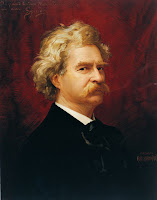OF STUDIES
The word ‘essay’ was first used by the French writer
Montaigne from whom Bacon adopted it. Bacons essays are in a class apart from
those of the other essayists like Lamb, Macaulay and Addison. He himself called them “pithy jottings,
rather apt than curious’. The
description exactly fits his writings, especially earlier essays like “Of
Studies”.
In “Of Studies”, the sentences are nearly all short; crisp
and sententious. There are few
connectives. Each sentence stands by
itself, expressing briefly and precisely his weighty thought. The epigrammatic terseness and the sharp
antithesis and balance are seen as found in all his writings. But in, “Of Truth”, Bacon imparts warmth and
colour to his style. Illustrations
abound, metaphors and similies crop up.
In “Of Studies” each sentence is a concentrated expression of his idea,
and most of them have acquired the universal currency of proverbs.
Bacon speaks at length of the value of study. According to him, three purposes are served
by studies.
1. They give delight.
2. They are an ornament
to man.
3. They add to the
ability of man.
In retirement and in aloofness reading gives pleasure. As an ornament, one’s study adorns one’s
conversation. The ability of a learned
man is seen in his judgment and in the way he carries out his business. Even experienced men turn to learned people
for advice and guidance. Yet to spend
too much time in studies is a sort of idleness, and to use one’s knowledge too
much in conversation is nothing short of affectedness. To judge wholly by the
rules one has studied is the tendency of a scholar. Studies perfect the inborn talent of man,
which is further completed by experience.
In this respect studies are like natural plants which require pruning. Reading should not tempt one to contradict
others. Neither should one believe all
that is stated in books. What is
absorbed from books should be weighed well before introducing them in one’s
talk.
Bacon speaks of different types of books in his essay
entitled “Of Studies”.
1. Some books are to be tasted [just enough to go through the book]
2. Others to be swallowed
[read with great attention]
3. Few to be chewed and
digested [each word must be meditated upon]
Condensed or abridged books are like distilled water, bright
but tasteless. Books on history add to
the wisdom of man, for they are authentic account of the plots and plans made
by the leaders of men who have gained tremendous success in life or failed
miserably. Reading of poetry makes man
intelligent and imaginative, for poets present an imaginary world in their
works. The study of mathematics makes
men clever and quick in grasping. The study
of natural science increases the depth of mind.
Morality makes men grave and the study of logic enables men to argue
well.
Reading, according to Bacon, makes a man well-informed while
conversation makes him quick-witted, and writing makes him impeccable. To write well he needs a good memory, for a
writer should be careful not to repeat his ideas.
Bacon concludes his essay “Of Studies” by suggesting remedies
for deficiencies in some of the mental faculties. He believes that there is scarcely any
frailty in human mind which cannot be dispelled by the study of a subject fit
for such a mind. Just as physical
exercises can cure the diseases of the body, the imperfections of the mind can
be expelled by study.
Bowling is considered good for curing the stones in the
kidney; shooting is good exercise for lungs and breast; gentle walking is good
for the stomach and riding is prescribed for any illness associated with the
head. Similarly, if a man’s mind lacks
concentration he should study mathematics in which if his mind wanders from the
subject, he will have to start again from the beginning. If one is unable to discover the fine
distinctions, he should study the works of the medieval philosophers who were
skilled in subtle debates, and in the case of men who cannot argue well, Bacon
recommend the study of the lawyer’s cases.
Thus every defect of the mind can be cured by the study of the proper
subject.




